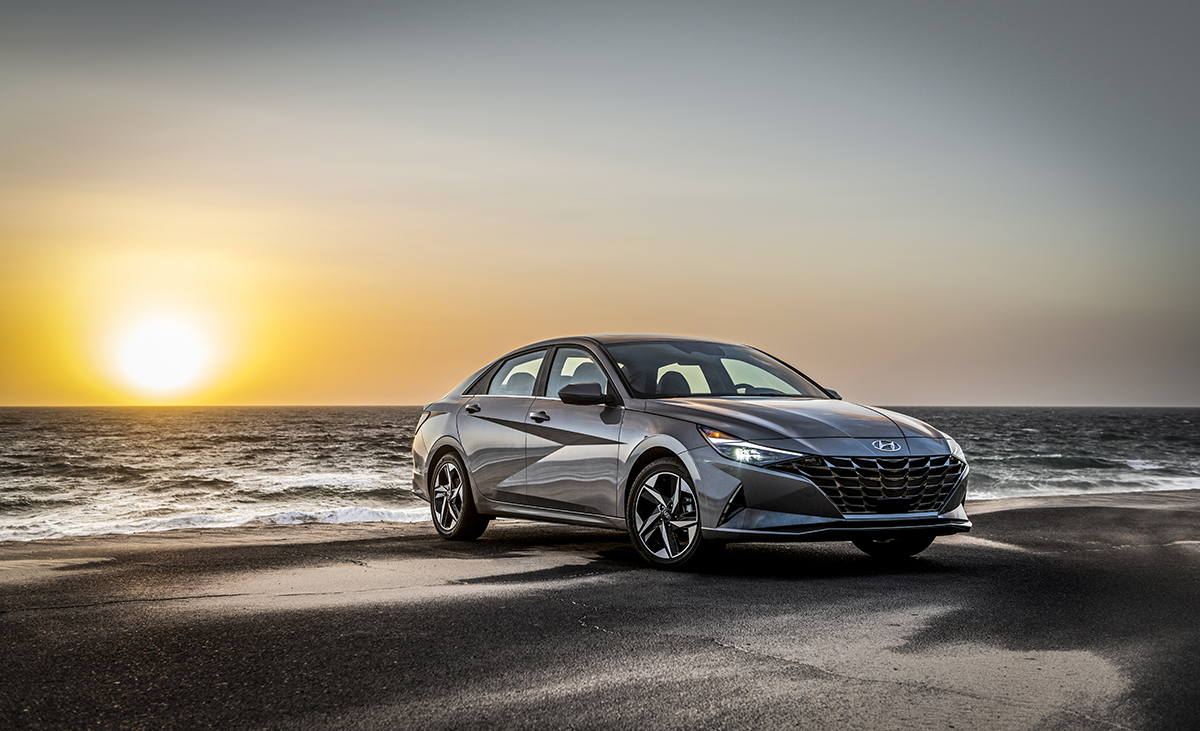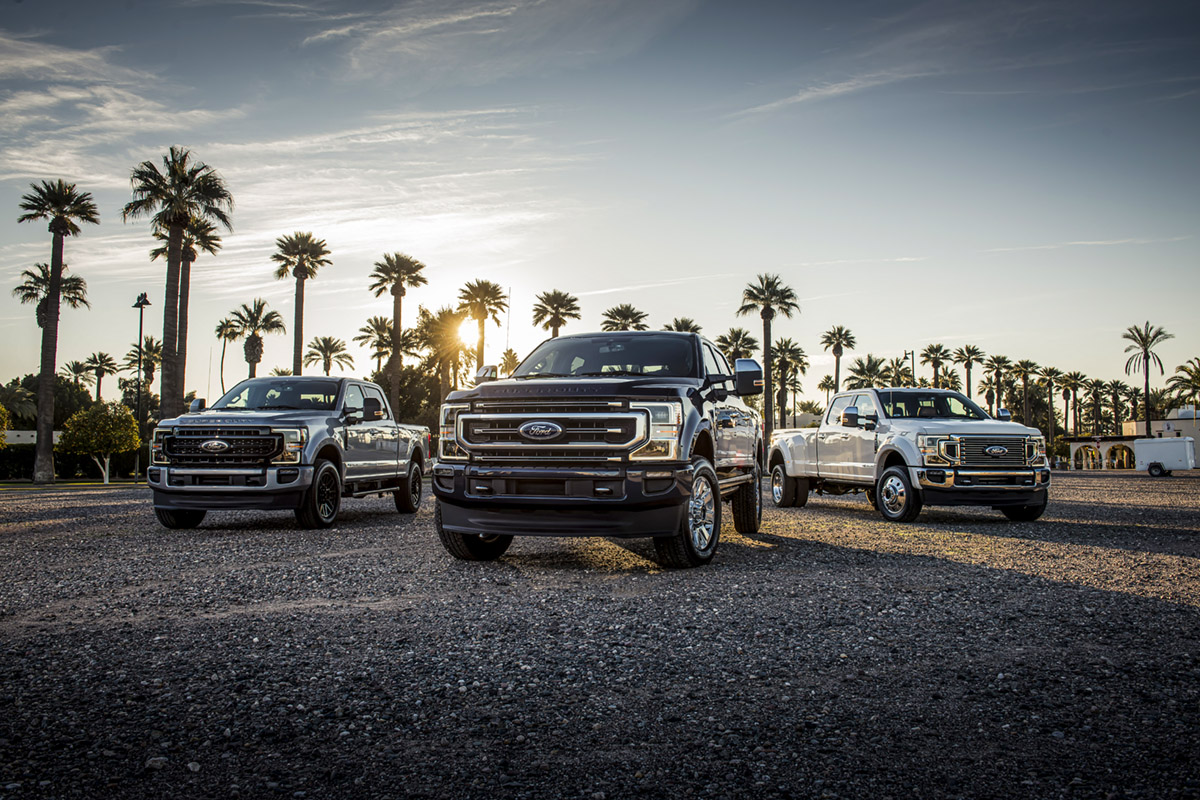Driven: 2019 VW Jetta R-Line, (Almost) All The Right Moves

No matter what you hear sedans are not dead.
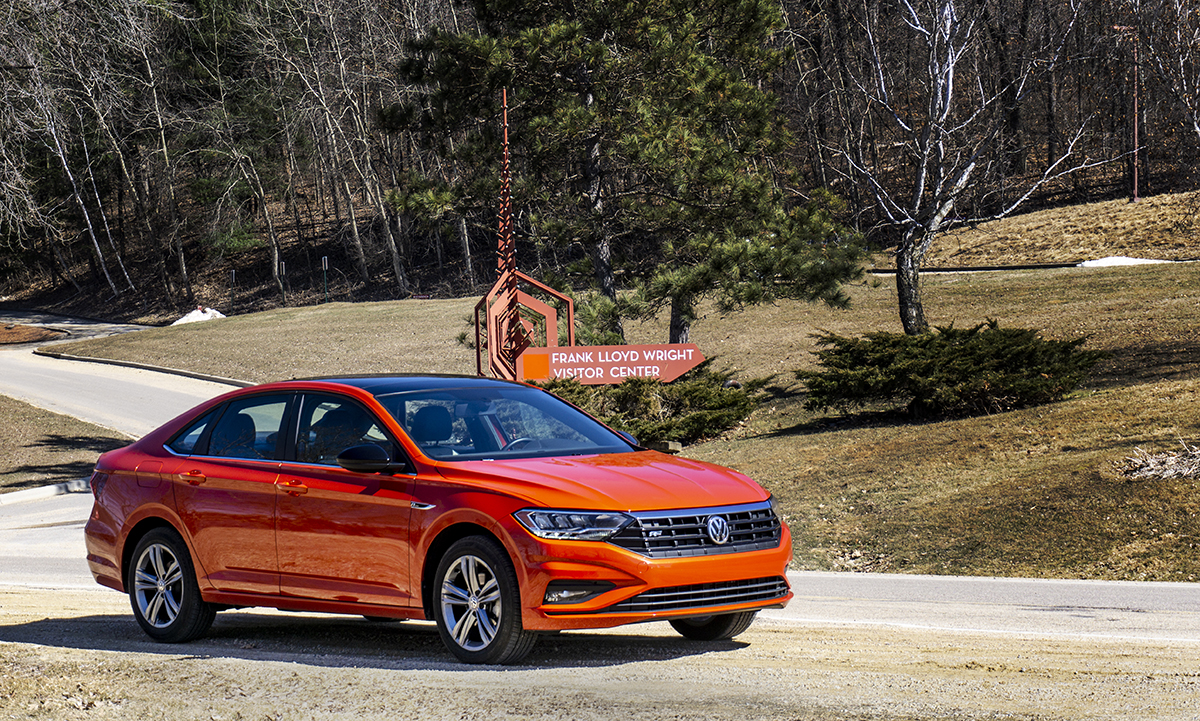
Though SUVs and Crossovers continue to take market share away from four-door vehicles with a three box silhouette, over five million sedans were sold in North America last year and even more were sold in other markets around the world. A case in point, VW has sold 17.5 million Jettas since its introduction in 1979, a mere 3.2 million of those in the United States. So while Ford, GM, and Dodge have all discontinued the production of their small sedans, companies like BMW and VW with significant sales in global markets can still afford to make cars like the 2 Series and Jetta, which makes me very happy.
My happiness starts with Jetta’s new architecture, the MQB platform that underpins everything from the performance-oriented, two-seat the Audi TT to the family-focused, seven-passenger VW Atlas. The genius of the MQB platform is that it allows VW to save product development time and costs by using a modular system approach of shared dimensions, parts, and subsystems across a wide range of models. This means for Jetta is built on a foundation that’s robust, rigid, and proven for a lot less than if VW had to start from scratch. The result is that the 2019 Jetta is not only better in every way than car it replaces, it also costs significantly less. The base Jetta S starts at $19,345, $300 less than the 2018 model. Just as important, that also includes $1,105 dollars of additional content like LED head and tail lights, an electronic parking brake, 6.5-inch touchscreen, and chrome trim.
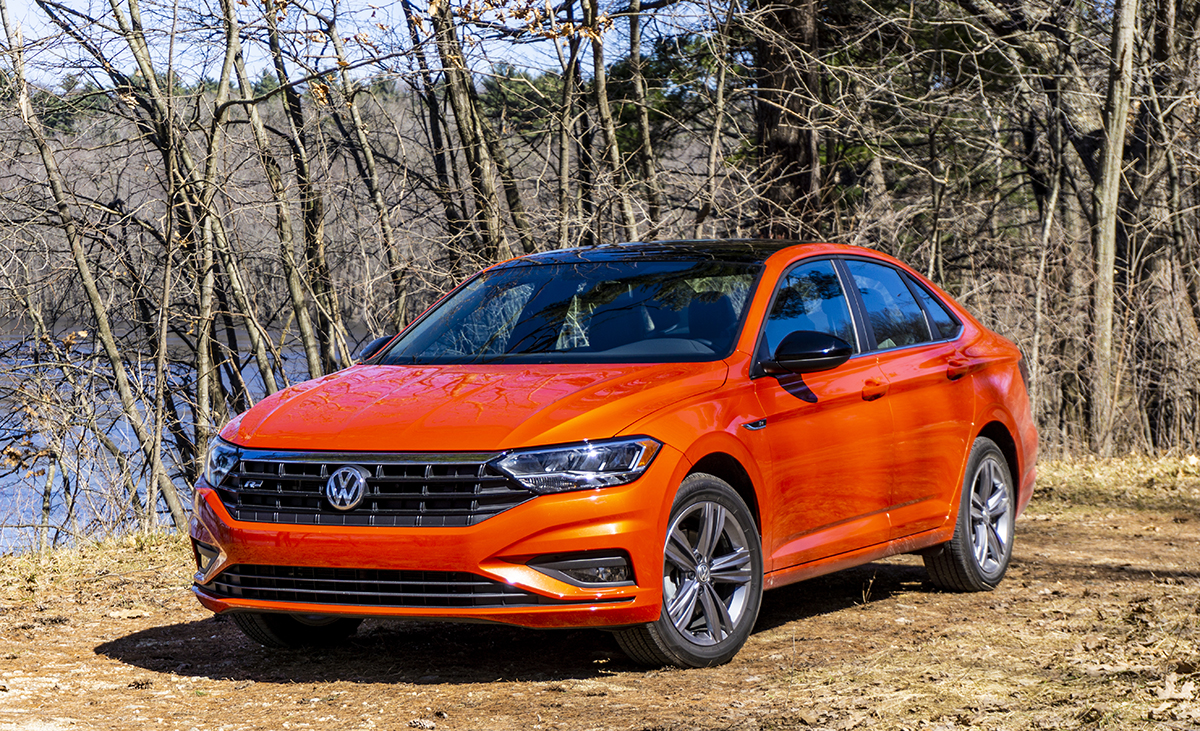
All Jettas are powered by a 147-horsepower, 1.4-liter, turbocharged engine that runs on regular unleaded. For now. A performance-oriented GLI model is due out soon which will feature the 228 horse 2.0-liter turbo four from the GTI. A six-speed manual is standard, but only available on the S model. Once you move up to the SE, R-Line, SEL, and SEL Premium you get a well sorted 8-speed automatic. The GLI will offer the choice of the GTI’s 6-speed manual and 7-speed DSG dual-clutch automatic. My week with the mid-trim R-Line model was enough to prove the standard engine and automatic transmission offer an enjoyable, if not exciting, driving experience. 0 to 60 miles per hour takes about seven and a half seconds which is almost two seconds quicker than the original GTI. The big benefit of this setup, however, is efficiency. The EPA says you’ll get 30 miles per gallon in the city and 40 on the highway. My average for the week was 35.8 miles per gallon and I wasn’t babying it.
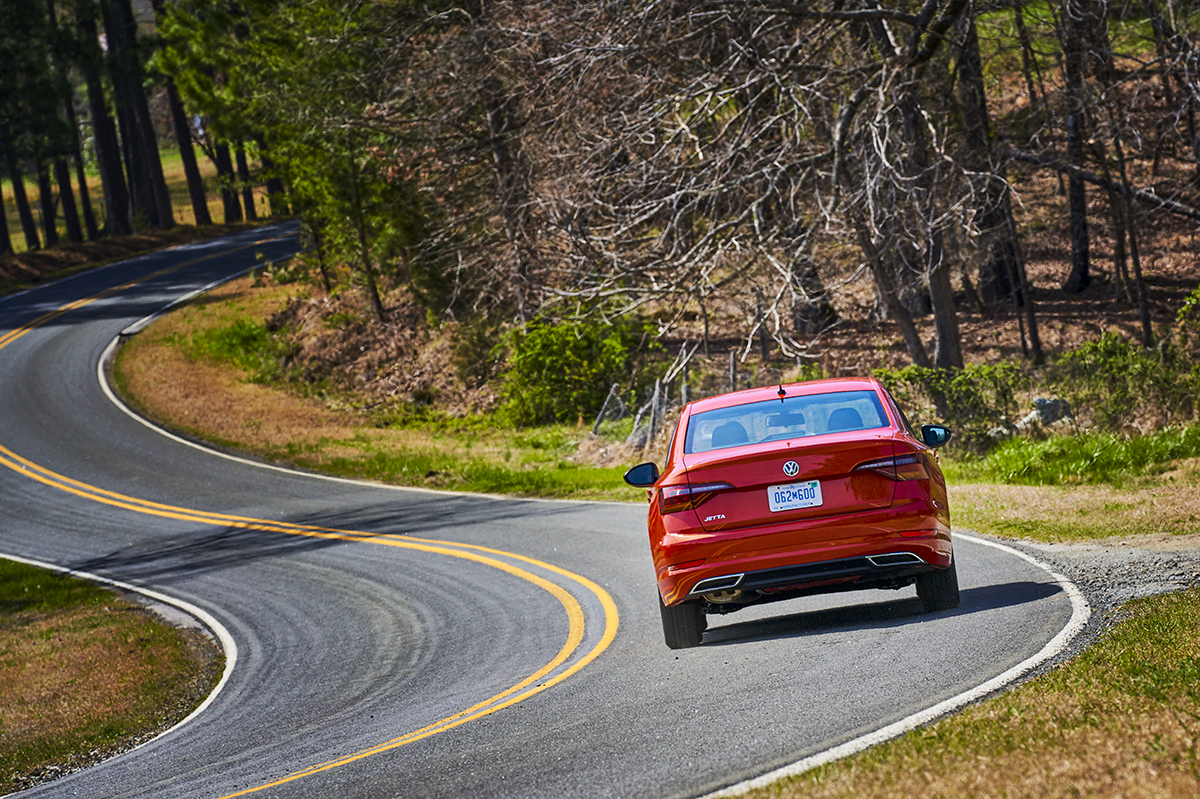
Not to be confused with a Golf R, the R-Line is a sport-light version of the base car. In addition to badging, blacked-out trim, fog lights, and snappy two-toned seats with contrast stitching, you get 17-inch aluminum alloy wheels with all-season tires, an flat-bottomed, leather-wrapped, multifunction steering wheel, and electronic differential that improves handling thanks to its additional torque vectoring capabilities. On the back roads this translated into a car that was lively and fun to drive, taking corners confidently at speed, tracking true over bumps and broken pavement, and reacting as expected to steering inputs. It does, however, leave plenty of headroom for a true sports sedan which I expect the GLI will be.
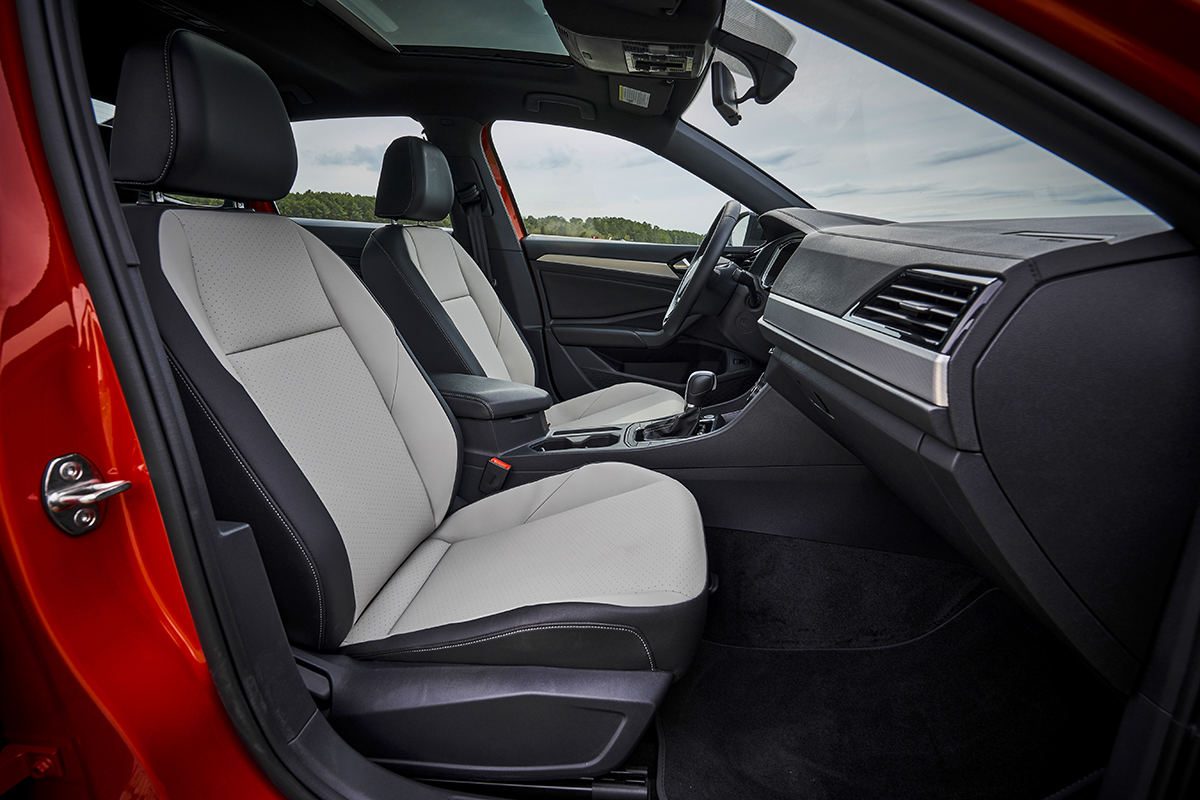
Inside, the R-Line is comfortable and roomy for a compact sedan. VW made some smart choices with materials throughout the cabin that feel and look premium where it matters most. The steering wheel, soft-touch dash, and faux leather seats are great examples of this. These and the controls are the things drivers and passengers touch most. Putting money into them instead of some hidden items – like opting for a torsion beam rear suspension over an independent setup – means it delights the driver and passengers on a daily basis. Even with the two-tone seats, sport gauges, keyless entry with pushbutton start, and dual-zone climate control the Jetta R-Line, feels simple, clean, and spartan. If I had to use one word to describe the overall design aesthetic inside and out, it’s mature. The Jetta carries itself with a confidence that says, “I don’t need all the bells and whistles, creases, folds, and wings my competitors have.” It’s the grownup in the category.
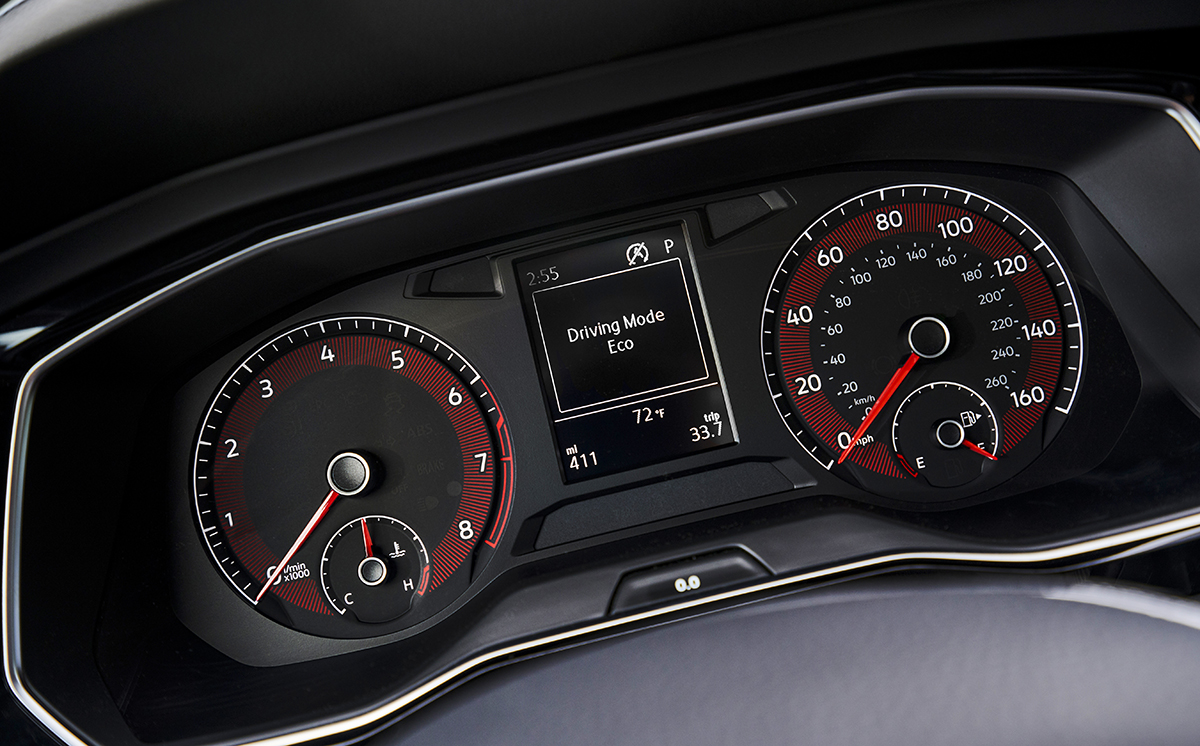
What it isn’t, however, is quiet. Apparently VW chose not to spend money on sound insulation. Road and wind noise penetrate the cabin. The suspension, while not race-track rigid, is taut in the way you expect a German car to be. You feel and hear every bump and crack in the pavement. I don’t mind it too much in a car that strives to be sporty, but for some it might be a bit much. You won’t get much help covering it up from the sound system, which like most of the other tech in the Jetta is basic. The stereo is a modest four-speaker unit that only offers AM and FM bands through its 6.5-inch touchscreen interface, though CarPlay and Android Auto are standard and can be accessed by plugging your phone into the car’s lone USB port. Forward collision warning and blind spot monitoring are standard, but adaptive cruise control, lane keep assist, lane departure warning, and auto high beams are not available in the R-Line. I’ve come to rely on adaptive cruise, but didn’t miss the latter three driver assist items.
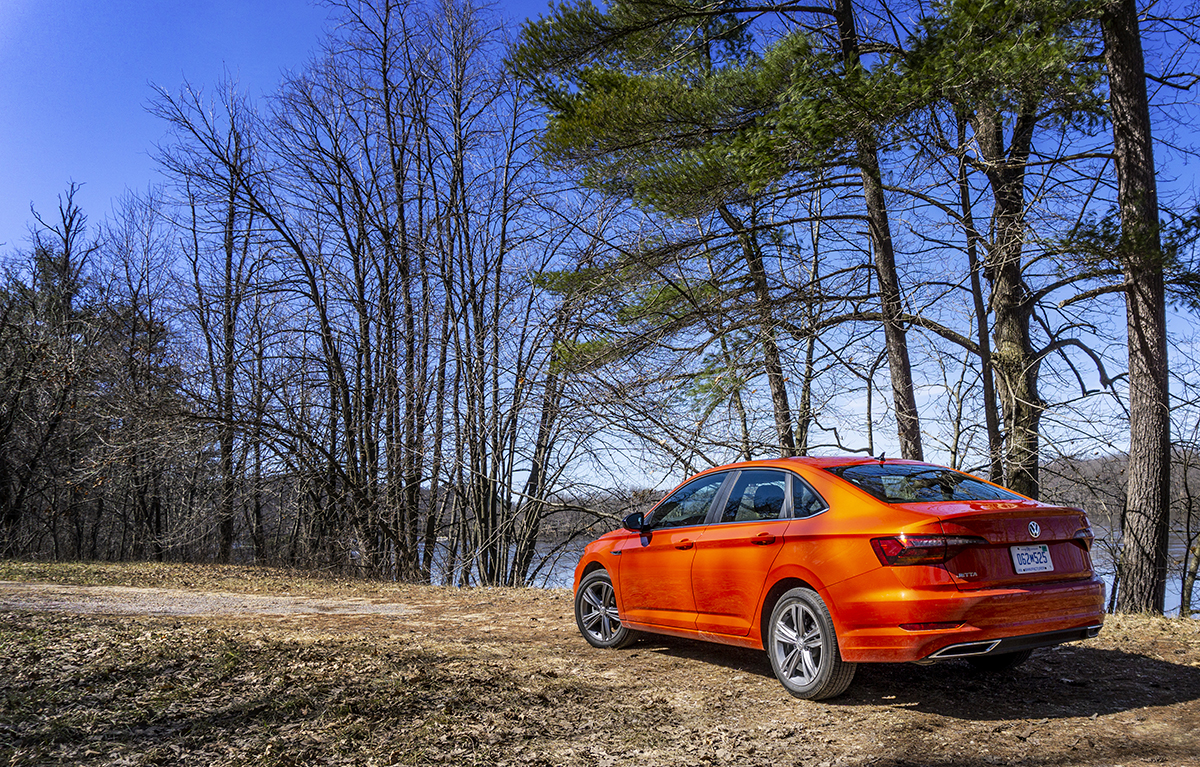
Overall the Jetta is a grown up, fun-to-drive compact sedan. Its styling is best in class. Its mileage is excellent. Its performance is satisfying. It is priced very reasonably. And, with VW’s six-year, 72,000 mile warranty, adding extra confidence in the Jetta’s reliability, it goes right to the top of the category for me over the Civic and Corolla, both excellent cars in their own right. The fact that it has a color as interesting as Habanero Orange Metallic, is just icing on the cake.
2019 VW Jetta R-Line
Four-door, five-passenger compact sedan
Base Price: $18,745
Price as tested: $24,140
Major Options: SE and R-Line Packages, Habanero Orange Metallic Paint ($295), Destination ($850)
Engine: 1.4-liter turbocharged, intercooled four-cylinder with fuel injection
Transmission: 8-speed automatic with manual shift mode
Power: 147 HP @ 5,000 RPM
Torque: 184 @ 1,400 RPM
Curb weight: 2,970 lbs
0-60 MPH: 7.7 seconds
EPA MPG: 30 city, 40 highway

